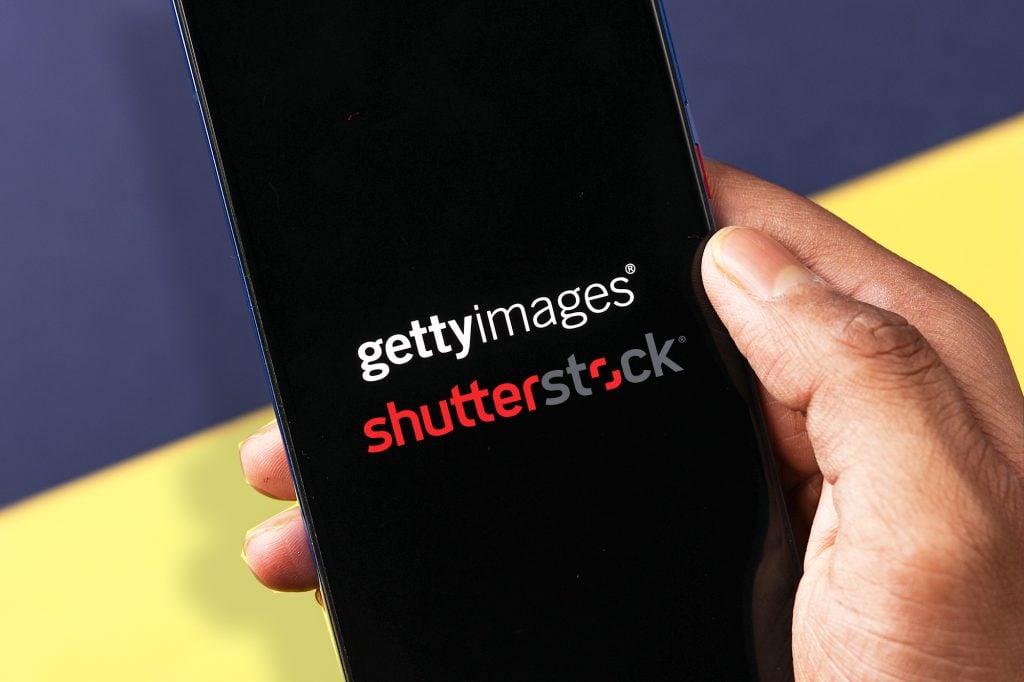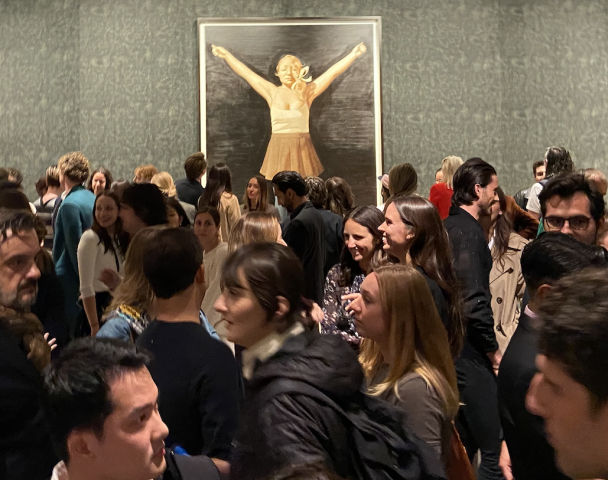Art & Tech
Getty Images and Shutterstock Are Merging. Here’s Why Photographers Are Less Than Thrilled
The move comes as both companies face increased pressure amid the rise of artificial intelligence.

Stock and editorial image licensing giant Getty Images has announced plans of a $3.7 billion merger with its fierce competitor, Shutterstock, a stock photography company.
Craig Peters, the chief executive of Getty Images, announced the merger to contributors in an email Tuesday morning, noting that the company was “excited” to share the news while cautioning that the deal was still subject to stockholder and regulatory approval. Each company will continue to operate until the deal is finalized.
A news release from Getty Images noted that the merger would position the companies to “meet the evolving needs of creative, media, and advertising industries through combined investment in content creation, event coverage, and product and technology innovation.”
“We are undertaking this merger in large part because we expect it to provide expanded reach for your content, support for new asset types and formats, and enhanced support and tools to manage your work,” Peters, who would remain the head of the merged company, told contributors in the email.
Peters also addressed the rise of artificial intelligence, writing that Getty Images believes in “the need to compensate creators for the use of their work.” He assured photographers that such a view would not change because of the deal. Shutterstock boss Paul Hennessy likewise hinted at technological innovation opportunities like A.I. in a brief statement.
Getty Images and Shutterstock have each already been forced to respond to the tide of A.I. In 2023, Getty Images launched an image generator trained on its library of licensed photos, which it also rolled out on its subsidiary iStock. Shutterstock previously partnered with OpenAI to provide training data for A.I. generators.

An image from Shutterstock.AI’s Overcoat collection. Photo courtesy of Shutterstock.AI
Photographers who spoke to Artnet News, however, voiced deep concerns over the merger.
“In my view, any consolidation invariably means photographers will suffer. This merger is monopolistic,” said veteran photojournalist Yunghi Kim. “Getty has always aimed to corner the image market.”
“Most of the contributors to Getty are freelance photographers who carve out a modest living licensing their proud work for royalties, but increasingly you hear photographers complain of getting pennies on their work,” she added. “Some photographers even risked their lives to document this work.”
Photojournalist Angus Mordant, whose images have been published in the New York Times and the Wall Street Journal, said he feared the merger would “create a monopoly that only stands to hurt photographers.” Mordant, who has not shot on assignment for Getty Images, echoed the criticism that the company has paid notoriously low rates over the years.
“There has been a long history of plummeting stock image pricing and both Getty and Shutterstock have been notorious for leading the race to the bottom of the barrel with some of the lowest licensing rates in the industry,” Mordant said.
Previously, Getty has come under fire regarding low compensation for photographers regarding day rates and royalties. In 2019, Getty announced a Royalty-Free licensing system versus Rights Managed licensing for its creative stock imagery, a move that ultimately reduced photographer compensation.
Daniel McKnight, a photojournalist for the New York Post, said the benefit of companies like Getty Images and Shutterstock is that photographers can submit stock photos and receive compensation for their work at a time when it’s difficult to get paid as a photographer.
But Stephen Yang, another photojournalist, remarked that Shutterstock’s contributor network has long been filled with what he called “amateurs” who “dilute the pool of available images.”
“It’s telling that Getty would want to fold that into their already devalued pool of imagery,” Yang said, while McKnight admitted that the pay for the contributors already is “laughable.”
“I can’t imagine that one company basically owning the entire stock photo market is going to do anything to benefit the photographers that are actually providing that artwork,” McKnight added. “The people in those places think they’re doing a favor for photographers on the street and, in reality, they’re just exploiting them.”
Artnet News has reached out to rivals Adobe Stock and Alamy for comment but did not hear a response back by press time.






